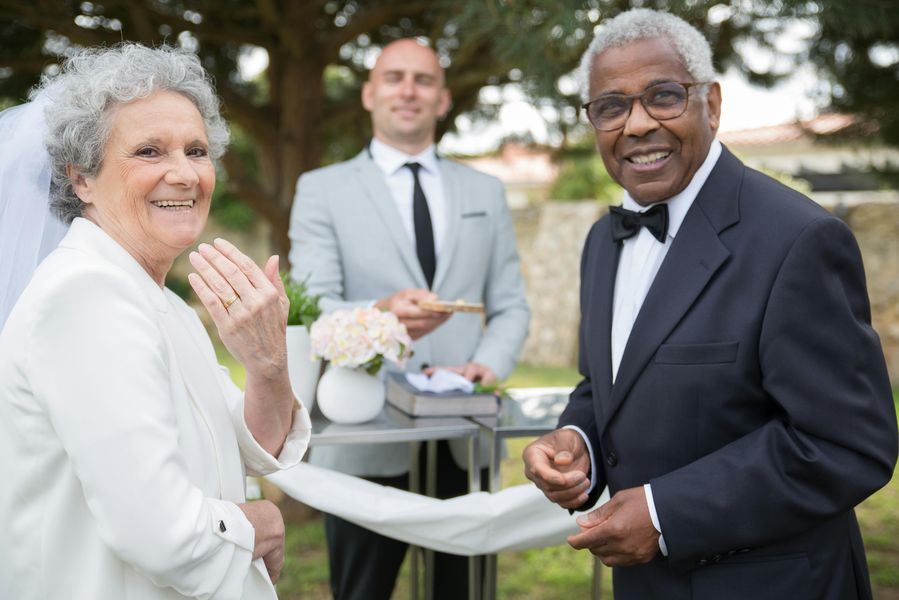Importance of Trust in Relationships
Have you ever wondered why some relationships last while others fizzle out within a few months? It all boils down to trust.
Trust is the foundation of a healthy relationship, the bedrock upon which a strong partnership is built. Let’s dive deeper into why trust is so crucial and how you can cultivate it in your relationships.
Definition of Trust
Trust is defined as the reliance on the integrity, strength, ability, or surety of a person or thing. Essentially, it means that you have faith and confidence in the reliability of another person, that you believe they will act in your best interests, and that they will be truthful with you.
Trust is a two-way street, so it’s reciprocal in nature. It’s built through mutual respect, honesty, and open communication.
Love and Trust in Relationships
Love and trust go hand in hand; they are two sides of the same coin. To love someone is to trust them and vice versa.
Without trust, a relationship cannot survive, no matter how strong the love may be. Love is not just about feelings of passion and romance; it’s about a deep emotional connection, built on a foundation of trust and respect.
Importance of Trust in Relationships
Trust is essential for a relationship to be enduring. It creates a sense of security that allows individuals to be their authentic selves.
When there is trust, there is no need for insecurity, jealousy, possessiveness, or clingy behavior. Instead, each person can be vulnerable and secure in the knowledge that their partner has their best interests at heart.
Without trust, a relationship can quickly become toxic. When we don’t trust our partners, we become suspicious and paranoid, leading to unhealthy patterns of behavior.
Suspicion can quickly turn into jealousy, envy, and possessiveness, which are toxic to healthy relationships. These negative emotions are often rooted in our own personal insecurities and fears, and if left unchecked, can lead to the downfall of a relationship.
However, when there is trust, there is a willingness to be vulnerable. When we trust someone, we feel safe and secure, which allows us to be authentic and true to ourselves.
This allows us to express ourselves honestly and openly to our partners without fear of judgment or rejection. When both partners are free to express themselves truly, it leads to a deeper emotional connection and strengthens the bond between them.
Teachings of Trust in Relationships
Vulnerability and Trust
The key to building trust is vulnerability. Being vulnerable means allowing ourselves to be emotionally exposed and open to the possibility of being hurt.
Vulnerability can be scary, but it’s essential for developing deep connections with others. When we allow ourselves to be vulnerable, we demonstrate our willingness to trust our partners.
Vulnerability and trust go hand in hand.
Feeling Secure with Trust
Trust creates a sense of security in a relationship. When we trust our partners, we feel secure in the knowledge that they have our best interests at heart.
This security allows individuals to be open and vulnerable, knowing that they are free to express themselves without fear of judgment or rejection.
Becoming More True to Yourself
When there is trust in a relationship, each person can be their true self without fear of being judged or rejected. This is because trust creates a safe and secure environment where individuals are free to express themselves honestly and openly.
Better Connections with Trust
Trust strengthens the emotional connection between partners. When there is trust, each person knows that the other has their best interests at heart, leading to deeper connections and stronger bonds.
Feeling Loved and Less Lonely
When we trust our partners, we feel loved and less lonely. Trust creates a sense of security that allows us to be vulnerable and open to deep emotional connections.
Having someone to trust and rely on can make all the difference in our lives. Hollywood legend Julianne Moore once said, “Trust is the basis of any relationship.
If you don’t have trust, you don’t have anything.” She’s right. Trust is the bedrock of a healthy and strong relationship.
Without it, relationships can become toxic and short-lived. However, when there is trust, it creates a sense of security, allowing individuals to be their authentic selves, and leading to deeper emotional connections and stronger bonds.
So, cultivate trust in your relationships, and watch them thrive.
Tips for Building Trust in Relationships
Trust is an essential component of any successful relationship. It lays a foundation of security, honesty, and mutual respect between partners, leading to deep emotional connections and a strong bond.
Building trust takes time and effort, but it’s worth it in the long run. Here are some tips to help you build trust with your partner:
Be Worthy of Trust
Trust is earned, not given. To build trust, you must demonstrate that you are worthy of it.
This means being honest and transparent in all your dealings with your partner. It also means being reliable, consistent, and dependable, ensuring that your partner knows they can count on you.
Taking Responsibility for Your Errors
Mistakes are a part of life, and it’s easy to make them. However, it takes courage and strength to accept responsibility for your actions and make amends.
When you take responsibility for your errors, you show your partner that you are reliable and accountable, and they can trust you. Don’t Make Empty Promises
Empty promises can crush trust.
If you promise your partner something, follow through with it. Delivering on your promises shows your partner that they can trust you to do what you say you will do.
If you can’t deliver on something, be honest and communicate with your partner about why it’s not possible.
Be There for Your Partner
Being there for your partner builds trust. Supporting them through tough times, listening to them, and offering emotional and practical support demonstrates that you have their back and are committed to the relationship.
Build Your Self-Confidence
Self-confidence is key to building trust. When you have confidence in yourself, you radiate a sense of trustworthiness, honesty, and reliability.
This can make all the difference in building a strong, lasting relationship.
Have Clear Boundaries and Definitions
To build trust, you must have clear boundaries and definitions for your relationship. This means communicating your expectations and needs honestly and openly.
When you do this, both partners are clear on what is expected of them, easing any misunderstandings and leading to a more trusting relationship.
Communicate Effectively
Effective communication is essential for building trust. When there is honest, open communication, each party understands the other’s needs and feelings, leading to enhanced trust and emotional connection.
Learn to Let Go
Holding onto past hurts and grudges can harm trust. Learning to let go of these hurts is necessary in building trust.
This can involve forgiving your partner and letting go of any resentment or grudges that you may harbor. Don’t Be Afraid of Getting Hurt
Taking risks is part of building trust.
It involves taking a chance on someone, knowing that you may get hurt. Trust involves vulnerability, and being willing to take the chance and open yourself up is necessary to build a long-lasting, trusting relationship.
Signs of Trust in a Relationship
Honesty and Transparency
Honesty and transparency are cornerstones of any trusting relationship. Honesty means being truthful and candid with each other, while transparency means sharing your thoughts, feelings, and experiences openly.
Defined Boundaries
Trusting relationships have defined boundaries. Each partner knows what is expected of them and what is acceptable behavior within the relationship.
Sticking to Commitments and Promises
Partners who trust each other stick to commitments and promises. If something comes up, they communicate honestly and openly to renegotiate their commitments.
Standing by Each Other During Tough Times
One of the strongest signs of trust is standing by each other during tough times. When partners can depend on one another through the ups and downs of life, it strengthens their emotional connection and builds a deeper trust.
Building trust in a relationship takes time, commitment, and effort, but its worth it in the end. By being honest, reliable, dependable, and communicative, and by demonstrating your trustworthiness in words and actions, you can create a strong foundation of trust.
When both partners trust each other, they enjoy a connection that is deep and lasting, one filled with genuine caring and respect.
Causes of Lack of Trust in a Relationship
Trust is crucial to building and maintaining a strong and healthy relationship between partners. However, things can go wrong and create a lack of trust between partners.
Here are some common causes of a lack of trust in a relationship:
Constant Lying
Without honesty, there can be no trust. When one partner lies to the other repeatedly, it creates a lack of trust.
This is because it’s hard to build a relationship with someone who can’t be honest with you. Partners should be truthful about their actions and feelings, and this helps establish a basis for trust.
Lack of Discipline or Commitment
Another cause of a lack of trust in a relationship is a failure to stay disciplined or committed to promises. If you repeatedly fail to follow through on commitments, it can create a lack of confidence in your partner that they can depend on you.
Betrayal
The ultimate cause of a lack of trust in a relationship is betrayal. When one partner violates the others sense of trust, it can damage the relationship irrevocably.
Betrayal can take many forms, including infidelity or revealing confidential information. Can a Relationship Work Without Trust?
The answer is no. Trust is an integral part of any healthy relationship.
It provides a foundation for honesty, respect, and vulnerability, and all these elements are necessary for fostering a deep and lasting emotional connection. Without trust, partners face emotional and psychological distress and are unable to feel secure.
A lack of trust can lead to stress, anxiety, and feelings of isolation. When one partner doesn’t trust the other, they feel insecure and can’t be confident the relationship is headed in the right direction.
Due to a lack of trust, a relationship may be non-existent, dysfunctional, or toxic. Partners may feel suspicious and paranoid about one another’s actions, leading to insecurity and lack of proper communication needed for a healthy relationship.
A lack of trust erodes the foundation of a relationship, making it only a matter of time until the relationship falls apart.
The Bottom Line
In conclusion, it’s clear that trust is a vital component of a healthy relationship. It takes time and effort to build, but it’s worth it in the long run.
Partners should work together to establish open communication, honesty, and mutual respect as the cornerstone of their relationship. If trust is missing, it can be challenging to repair a relationship.
Both partners should be honest about their actions and feelings, stay committed to their promises, and remain disciplined when needed. By doing so, they can start to rebuild a relationship and establish trust once again.
As each partner demonstrates commitment to honesty and integrity, the bond between them grows stronger, and trust becomes deeper and more secure. The key is to work together, and in doing so, you can establish a relationship that will endure the test of time.
In conclusion, trust is a critical component of any healthy and successful relationship. It provides the foundation for honesty, respect, and vulnerability, and without it, a relationship is prone to lack of effective communication and long-lasting emotional connection.
Building and maintaining trust takes time and effort, but it’s worth it in the long run. By being honest, dependable, and loyal in words and actions, both partners can establish trust in their relationship.
This will lead to deeper emotional connections, a strengthened bond, and a long-lasting relationship. Remember, trust is earned, not given, and fostering it takes effort from both partners.
With dedication and hard work, trust can make all the difference in a relationship, making it fulfilling and successful.



